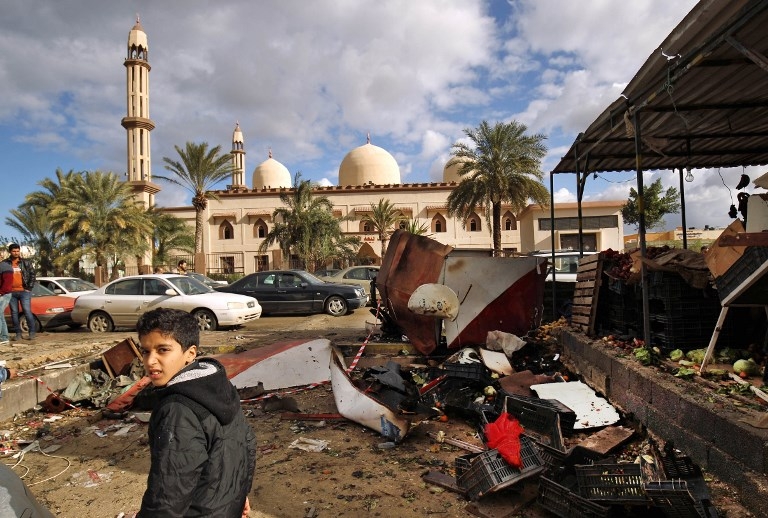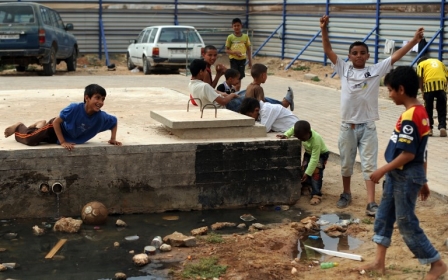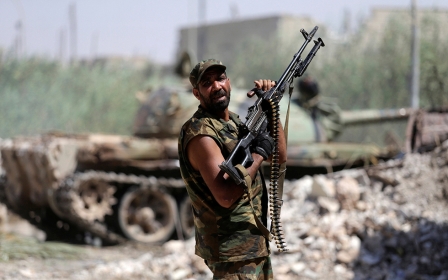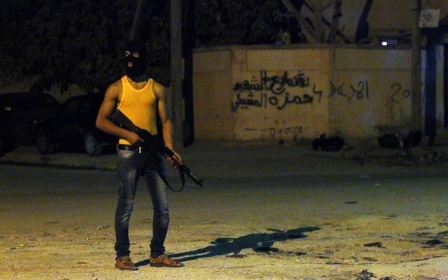Mosque attack in Libya's Benghazi kills one, wounds 149

Twin bomb blasts struck a mosque in Benghazi in eastern Libya on Friday, killing at least one person and wounding 149 in the latest attack to target worshippers in the city.
The blasts occurred during Friday prayers at the small mosque located in the Majouri district, residents said. The devices appear to have been activated remotely using a mobile phone, according to a military source.
In the wake of the blasts debris was left scattered across the floor of the mosque, with windows blown out and bloodstains smeared on the wall.
The source said one bomb had been hidden in a coffin in the courtyard of the mosque and another in a shoe cabinet at the entrance.
One person was killed and 149 wounded, according to Moataz Trabelsi, spokesman for the health ministry of the parallel administration.
Two weeks ago, around 35 people were killed by a twin bombing at another mosque in Benghazi.
Libya’s second-largest city is controlled by the Libyan National Army (LNA), led by eastern-based commander Khalifa Haftar.
The LNA was battling militants, including some linked to Islamic State and al Qaeda, as well as other opponents until late last year in the Mediterranean port city.
Haftar, a possible contender in national elections that could be held by the end of 2018, has built his reputation on delivering stability in Benghazi and beyond, promising to halt the anarchy that ensued after a NATO-backed uprising ended Muammar Gaddafi’s long rule nearly seven years ago.
Haftar launched his military campaign in Benghazi in May 2014 in response to a series of bombings and assassinations blamed on militants.
In past months there have been occasional, smaller scale bombings apparently targeting LNA allies or supporters.
New MEE newsletter: Jerusalem Dispatch
Sign up to get the latest insights and analysis on Israel-Palestine, alongside Turkey Unpacked and other MEE newsletters
Middle East Eye delivers independent and unrivalled coverage and analysis of the Middle East, North Africa and beyond. To learn more about republishing this content and the associated fees, please fill out this form. More about MEE can be found here.




